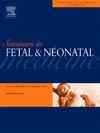新生儿重症监护室减少/消除输注红细胞的实用指南。
IF 2.8
3区 医学
Q1 PEDIATRICS
引用次数: 0
摘要
对于患有严重贫血或急性大出血的新生儿来说,输注红细胞可以挽救他们的生命。然而,我们必须明白,输注红细胞对新生儿具有独特而重大的风险。传播病毒、细菌或其他微生物感染或导致循环负荷过重的风险极为罕见,这是众所周知的,也是输血知情同意书的一部分。给最小和最不成熟的新生儿重症监护病房患者输血的风险则不那么为人所知,也不总是同意程序的一部分;具体来说,多次输血可能会加重炎症(尤其是肺部炎症),在某些亚群中还与早产儿视网膜病变和神经发育迟缓有关。采用非药物避免输血技术可降低输血率。药物避免输血,特别是促红细胞生成剂,可进一步降低需要输血的风险。本文介绍的规程是一项高效且经济的避免输血计划。使用这些方案,许多新生儿重症监护病房的患者都可以避免输血。本文章由计算机程序翻译,如有差异,请以英文原文为准。
A practical guide to reducing/eliminating red blood cell transfusions in the neonatal intensive care unit
Red blood cell transfusions can be lifesaving for neonates with severe anemia or acute massive hemorrhage. However, it is imperative to understand that red cell transfusions convey unique and significant risks for neonates. The extremely rare risks of transmitting a viral, bacterial, or other microbial infection, or causing circulatory overload are well known and are part of blood transfusion informed consent. Less well known, and not always part of the consent process, are more common risks of transfusing the smallest and most immature NICU patients; specifically, multiple transfusions may worsen inflammatory conditions (particularly pulmonary inflammation), and in certain subsets are associated with retinopathy of prematurity and neurodevelopmental delay. Instituting non-pharmacological transfusion-avoidance techniques reduces transfusion rates. Pharmacological transfusion-avoidance, specifically erythropoietic stimulating agents, further reduces the risk of needing a transfusion. The protocols described herein constitute an efficient and cost-effective transfusion-avoidance program. Using these protocols, many NICU patients can remain transfusion-free.
求助全文
通过发布文献求助,成功后即可免费获取论文全文。
去求助
来源期刊
CiteScore
6.40
自引率
3.30%
发文量
49
审稿时长
6-12 weeks
期刊介绍:
Seminars in Fetal & Neonatal Medicine (formerly Seminars in Neonatology) is a bi-monthly journal which publishes topic-based issues, including current ''Hot Topics'' on the latest advances in fetal and neonatal medicine. The Journal is of interest to obstetricians and maternal-fetal medicine specialists.
The Journal commissions review-based content covering current clinical opinion on the care and treatment of the pregnant patient and the neonate and draws on the necessary specialist knowledge, including that of the pediatric pulmonologist, the pediatric infectious disease specialist, the surgeon, as well as the general pediatrician and obstetrician.
Each topic-based issue is edited by an authority in their field and contains 8-10 articles.
Seminars in Fetal & Neonatal Medicine provides:
• Coverage of major developments in neonatal care;
• Value to practising neonatologists, consultant and trainee pediatricians, obstetricians, midwives and fetal medicine specialists wishing to extend their knowledge in this field;
• Up-to-date information in an attractive and relevant format.

 求助内容:
求助内容: 应助结果提醒方式:
应助结果提醒方式:


